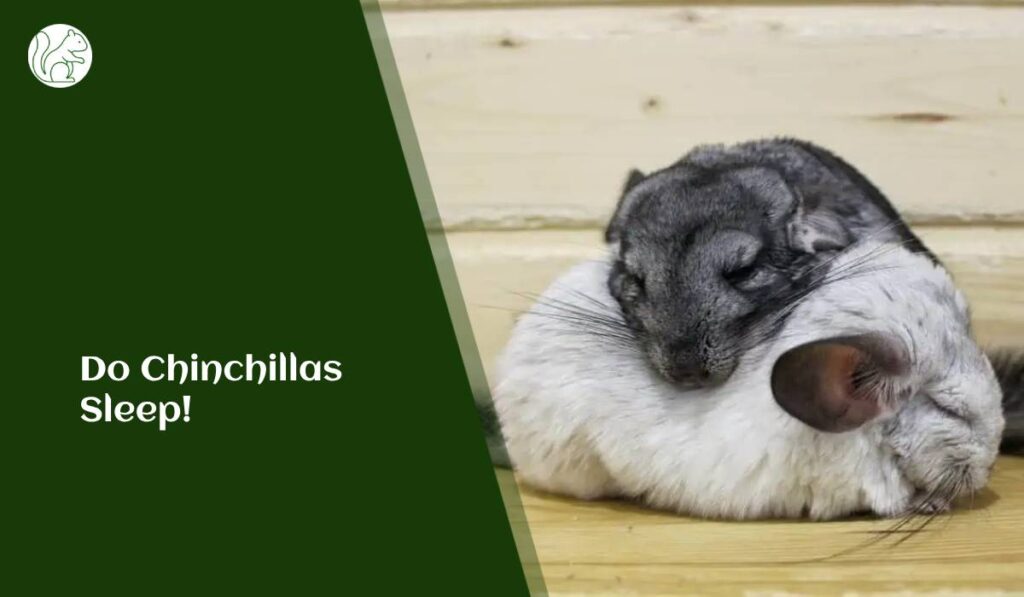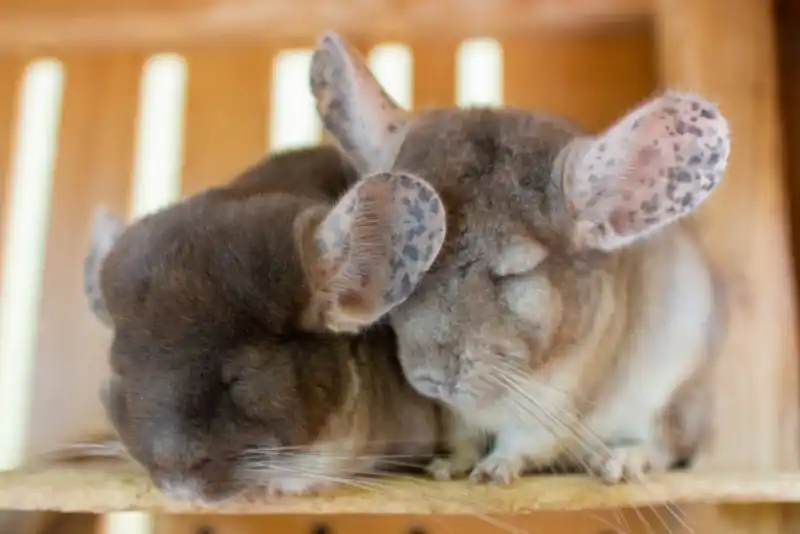Chinchillas, those adorable little balls of fur, are renowned for their charming personalities and luxurious fur coats. These small rodents are native to the Andes Mountains in South America and have become increasingly popular as pets. As a chinchilla owner or enthusiast, you may wonder about their sleeping habits. Do chinchillas sleep? How much sleep do they need? In this article, we’ll delve into the fascinating world of chinchilla slumber.

The Basics of Chinchilla Sleep
Like all creatures, chinchillas need sleep to stay healthy and happy. However, their sleep patterns differ significantly from ours. Chinchillas are crepuscular animals, which means they are most active during dawn and dusk. This behavior is thought to have evolved as a survival strategy in the wild, allowing them to avoid predators.
How Much Sleep Do Chinchillas Need?
Chinchillas typically sleep for short periods throughout the day, totaling about 12 hours of sleep on average. These short naps, called “catnaps,” can last anywhere from a few minutes to half an hour. Chinchillas are light sleepers and can easily be awakened, even by subtle noises or movements in their environment.
The Importance of a Quiet Environment
Creating a peaceful sleeping environment for your chinchilla is crucial. Since they are sensitive to disturbances, it’s essential to place their cage in a quiet area, away from noisy appliances and loud activities. This ensures that they can enjoy their catnaps without disruptions.
Crepuscular Creatures
Chinchillas are crepuscular animals, which means they are most active during dawn and dusk. This behavior is a survival strategy that helps them avoid their natural predators, which are typically more active during the day. As a result, chinchillas have adapted to be alert and active during these low-light periods.
Keeping an Eye on Their Sleep Patterns
As a responsible chinchilla owner, it’s essential to keep an eye on your pet’s sleep patterns. Any significant changes in their sleep behavior could be a sign of stress, illness, or discomfort. If you notice your chinchilla sleeping excessively during the day or struggling to sleep at night, it’s crucial to consult a veterinarian who specializes in exotic pets.

Signs of a Content Chinchilla
A content and well-rested chinchilla is a healthy one. Here are some signs that your chinchilla is getting adequate sleep:
- Playfulness: A well-rested chinchilla is more active and playful during their waking hours.
- Healthy Fur: Proper sleep contributes to a shiny and well-groomed fur coat.
- Consistent Eating: A chinchilla that sleeps well tends to have a consistent appetite.
- Alertness: They will be more alert and responsive when awake.
Sleep Disorders in Chinchillas
While chinchillas are generally good sleepers, there are instances when they may experience sleep disturbances or disorders. These can be caused by various factors, including illness, stress, or discomfort. If you notice any sudden changes in your chinchilla’s sleep patterns, it’s essential to consult a veterinarian who specializes in exotic pets.
Tips for Ensuring Quality Sleep
To promote healthy sleep habits in your chinchilla, consider the following tips:
- Provide a Comfortable Cage: Make sure your chinchilla’s cage is spacious, well-ventilated, and includes a cozy sleeping area.
- Maintain a Consistent Routine: Chinchillas thrive on routine, so try to maintain regular feeding and playtime schedules.
- Temperature Control: Keep their environment at a comfortable temperature, as extreme heat or cold can disrupt their sleep.
- Offer a Balanced Diet: A proper diet contributes to overall health and can aid in better sleep quality.
Conclusion
In conclusion, chinchillas do sleep, but their sleep patterns are quite different from ours. These adorable creatures enjoy short catnaps throughout the day, totaling about 12 hours of sleep on average. To ensure your chinchilla gets the rest they need, create a quiet and comfortable environment, watch for signs of contentment, and seek veterinary care if sleep disturbances arise. By prioritizing your chinchilla’s sleep, you can contribute to their overall health and happiness as a beloved pet.
